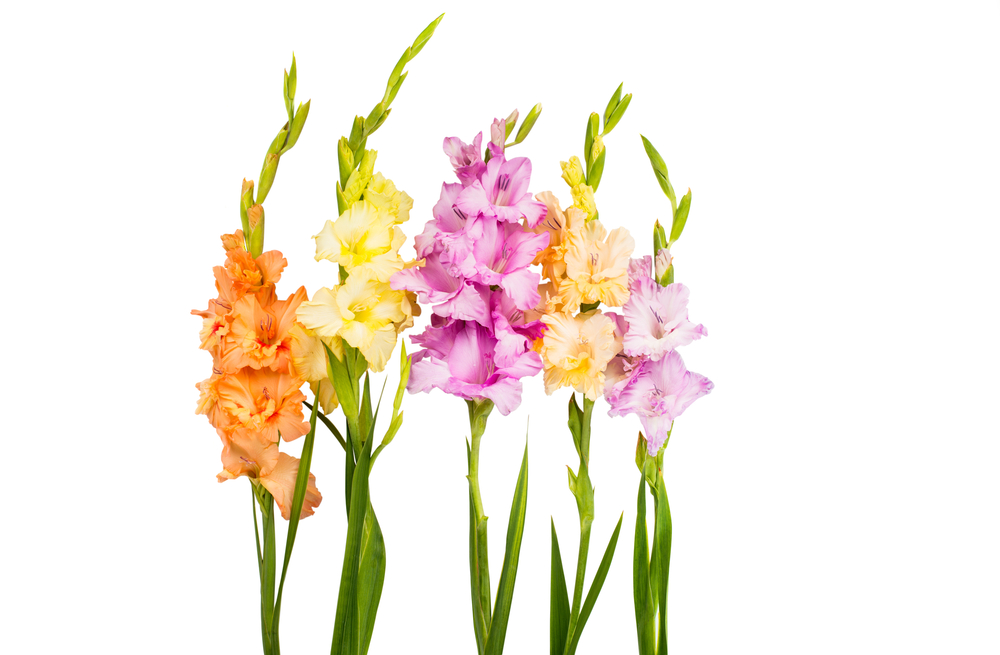 The gladiolus showcases tall, dramatic stalks of colorful blossoms. Because of the pointy shape of the leaves, their name is derived from the Latin gladius, which means sword and references Roman gladiators. Historically, British and Mediterranean gladiolus plants were often used for medicinal purposes, but in modern times the beautiful gladiolus is most often used purely as a decorative floral bouquet. Only about seven varieties of gladiolus occurred naturally in their native South Africa; but from those original species, more than 10,000 varieties of the gladiolus are cultivated today.
The gladiolus showcases tall, dramatic stalks of colorful blossoms. Because of the pointy shape of the leaves, their name is derived from the Latin gladius, which means sword and references Roman gladiators. Historically, British and Mediterranean gladiolus plants were often used for medicinal purposes, but in modern times the beautiful gladiolus is most often used purely as a decorative floral bouquet. Only about seven varieties of gladiolus occurred naturally in their native South Africa; but from those original species, more than 10,000 varieties of the gladiolus are cultivated today.
Gladiolus are grown in a variety of heights, from feet to five feet high. Just as varied are the colors and patterns – white, red, pink, yellow and purple flowers are commonplace, while stripes and accents make for vibrant variations. The colors of gladioli represent traditional floral meanings – red represents passion, white stands for purity and yellow conveys friendship, for example. As with most flowers, gladiolus express several symbolic meanings. Some of the emotions they convey include integrity, character and faithfulness, most likely originating with the connection to the ancient gladiators.
There are many occasions for sending a bouquet which features the gladiola. One of the more prolific meanings of the flower is remembrance, making these striking blooms a flower of choice for sympathy and tribute bouquets. Victorian romanticists believed that the sword-shaped leaves would pierce the heart of your intended, symbolizing love at first sight; making gladiolus a thoughtful bloom for your special someone. Additionally, the gladiolus is the traditional birth flower of August, as well as the flower that represents a 40th wedding anniversary.
With so many varieties and meanings, the gladiolus has a rich history. Regardless of the reason for sending these beautiful flowers, they are sure to be received with appreciation. The professional florists at Stadium Flowers of Everett are ready to help you create the perfect


